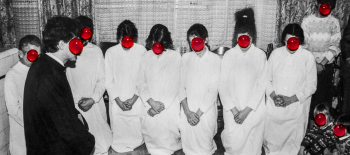Published January 2024 by Archipelago Books
Frank, acute, and intimate poems of human loss, resilience, and love – a detective poem, a historical hopscotch, a love story
“A truly lyrical longing for the world to be transformed.”— Polish Book Institute
Różycki collects moments of illumination – a cat dashing out of a window and “feral sun” streaking in, a body planting itself in the ground like rhubarb and flowering. He collects and collects, opens a crack, and clutches a shrapnel of epiphany.
Tomasz Różycki’s To the Letter follows Lieutenant Anielewicz on the hunt for any clues that might lead 21st century human beings out of a sense of despair. With authoritarianism rising across Eastern Europe, the Lieutenant longs for a secret hero. At first, he suspects some hidden mechanism afoot: fruit tutors him in the ways of color, he drifts out to sea to study the grammar of tides, or he gazes at the sun as it thrums away like a timepiece. In one poem, he admits “this is the story of my confusion,” and in the next the Lieutenant is back on the trail. “This lunacy needs a full investigation,” he jibes.
He wants to get to the bottom of it all, but he’s often bewitched by letters and the trickery of language. Diacritics on Polish words form a “flock of sooty flecks, clinging to letters” and Lieutenant Anielewicz studies the tails, accents, and strokes that twist this script.
While the Lieutenant can’t write a coherent code to solve life’s mysteries or to fill the absence of a country rent by war, his search for patterns throughout art, philosophy, and literature lead not to despair but to an affirmation of the importance of human love.
To buy the collection, see the Amazon link below:
To the Letter: Poems eBook : Rozycki, Tomasz, Rosenthal, Mira: Amazon.co.uk: Kindle Store
Or check with your preferred bookseller
Reviews
“In this philosophical collection that explores doubt—regarding language, God, and the prospect of repeating history—many poems address an unreachable “you” who could be a lover, a deity, or a ghost of someone long dead. Rosenthal’s translation draws out these poems’ shades of melancholy and whimsy, along with the slant and irregular rhymes that contribute to their uncanny humor. Różycki’s verse teems with sensuous, imaginatively rendered details.” — The New Yorker
“Across the ninety-nine poems of Polish poet Tomasz Różycki’s To The Letter, presides a calling out to absence, often in the form of this “you” whether in loss—cultural, global, personal—or self-examination . . . This collection has, perhaps, added resonance landing in 2023: “You—out there where the future pushes through like a worm from an apple, only the hole is in heaven and so enormous we’ll all fall in, along with tenements, convenience stores, our entire state—let’s say it’s nowhere—” A notable contribution to Polish poetry available in English–and a vital living voice, no less.” — Rebecca Morgan Frank, LitHub
“We live in feral times,” the poet says, asking us “what shape this era will carve / in flesh.” In Mira Rosenthal’s exacting, beautiful translations, Tomasz Różycki’s work gives us a moment of honest assessment, answering hard questions without patronizing, with lyric precision. One of Poland’s best living poets, he is writing at the height of his powers. Which, for me, means: there is mystery in his work, that feels trustworthy—“we will dig ourselves out of our private muck /of subtext, shed the weight,” he says, “and fly off, empty, for the nearest lightbulb.” It is amongst the quotidian that he seeks to be saved, his is a vision in which despite all the tragedy of this new century, the thrush that sings “at two a.m. outside /our window in the parking lot has saved / the day, the month.” If that is to be our new metaphysics, count me in. — Ilya Kaminsky, author of Deaf Republic and Dancing in Odessa
“The poems are intimate and wry, philosophically complex, and charged with metaphors for absence and language itself.” — Dana Isokawa, Poets & Writers Magazine
“Irony is the spice of poetry . . . Różycki’s irony can be caustic (“some people are so poor the only thing they have/is money, money”), or it can be sublimely political . . . Rosenthal deserves special praise for rendering Różycki’s wordplay, musical density, and metonymic dazzle into powerful English . . . Różycki’s poem as “rolled-up paper/gun” is a handmade, fragile, but potent technology for survival.”— Ange Mlinko, The New York Review of Books
“The past will never leave us. It will haunt our photographs; it will speak between the words that we read and write. Różycki’s collection, brought to us through Rosenthal’s beautiful translation, helps us remember that it is art that will lead us through to a bearable future, and art that will always speak the unspeakable.”— Iris Dunkle, Words Without Borders
“Mysterious events in Agualusa’s stories reveal a kinship with García Márquez, whereas events of mysterious ambiguity fall into Bolaño’s camp . . . Daniel Hahn’s translation successfully conveys that straight-faced equanimity needed for staring absurdities in the eyes.”— Tom Bowden, The Book Beat
“[Mira Rosenthal’s] English iterations fully relay the poems’ accessibility, music, and humor—as well as the ways they integrate into surprising valences with creativity, love, and interbeing . . .To the Letter reminds us that fragmentation offers an opportunity to listen and create, that the blank spaces between words are places in which new life may yet be lived. It reminds us that the reader is doubly alive, watching and being watched, even from the shadows.” — Michael Collins, Asymptote Journal
“For Różycki, the void is . . . about loss—whether of the place he was forced to flee, or of the life he missed out on as a consequence . . . Where poetry usually stops at anguish, Różycki goes the whole length to realize the fullness of a proxy conjured by loss, the stranger who lives on in the mind.” — Janani Ambikapathy, Harriet Books (the blog of the Poetry Foundation)
About the Author
TOMASZ RÓŻYCKI is the author of eleven volumes of poetry and prose. Over the last decade he has garnered almost every prize Poland has to offer as well as widespread critical acclaim, with work translated into numerous languages and frequent appearances at international festivals. In the U.S., he has been featured at the Unterberg Poetry Center, the Princeton Poetry Festival, and the Brooklyn Book Festival. His volume Colonies (translated by Mira Rosenthal) won the Northern California Book Award and was a finalist for numerous other prizes, including the International Griffin Poetry Prize and the Oxford-Weidenfeld Translation Prize.
MIRA ROSENTHAL is the author of The Local World, which won the Wick Poetry Prize. She is the recipient of a National Endowment for the Arts Fellowship and Stanford University’s Stegner Fellowship, and her work appears regularly in such journals as Poetry, Ploughshares, Threepenny Review, Guernica, Harvard Review, New England Review, A Public Space, and Oxford American. Her honors include a PEN/Heim Translation Fund Award, a Fulbright Fellowship, a grant from the American Council of Learned Societies, and residencies at Hedgebrook and MacDowell. She teaches creative writing at Cal Poly and lives on the central coast of California.



